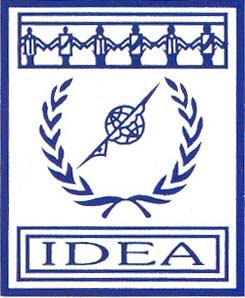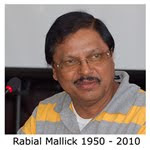
The 20th foundation day of IDEA was celebrated from January 23 to 25, 2009 in a grand manner at SNKA High School in Shyampur Block II, Howrah. The inaugural session of the celebrations and the start of the Agricultural & Health Fair witnessed eminent speakers with around 400 participants, mostly women.
In his welcome address, Rabial Mallick, the Director & Secretary of IDEA, delved on the work being done by his organization in sectors like education, health and sanitation, empowerment of women and girls through self-help groups, housing rights and generating environmental awareness and also training of farmers for sustainable and environmentally-friendly agriculture through use of organic fertilizers for retaining soil health and increasing production. He also informed that the block have been declared as a fully Sanitize Block.
Dr. S. K. Majhi, a well known doctor and a social activist, discussed the poor status of health in the country in spite of pledges to ensure health for all. Even after the constitution of the National Rural Health Mission (NRHM), the progress in the sector has been quite slow. Referring to the health of women and girls, he suggested that the nutritional component of pregnant mothers has to be given special attention. Dr. Majhi also urged the need for devolving greater responsibility in the health sector to NGOs who should generate health awareness and ensure health for all.
Ms. Anamika Maity, the saphapati of Shyampur Block-II, called on mothers to come forward and become conscious about the health of children and contact ICDS workers of and when necessary.
Prof. Hossainur Rahman, an eminent historian who was the chief guest, while comparing the status of Muslim women in the cities of Kerala and Lucknow, said that the situation in the former state is much better because education has spread there effectively. He observed that real and scientific education, which develops one’s personality and also social awareness, is the cornerstone for making women and girls conscious about the need for health. The spread of such education would also empower them to fight physical and mental torture and exploitation by religious leaders or others. Later he inaugurated the Fair.
Mr. Akkel Ali Khan, the MLA of Bagnan, pointed out that NGOs doing good work in the field of development like IDEA will receive all types of support of the state. Referring to women’s and girls, he said that 7.5 lakh women have become members of SHG in Howrah district and are coming forward to play a more constructive role in society. Mr. Khan also said that farmers have to be trained to use new technology and better farm practices in agriculture so that production and productivity increases and with it the earnings and living conditions of the community.
Among others present on the occasion were Mr. Shyamsundar Metia, gram panchayat pradhan, Mr. Dhurjati Mukherjee, Jt. Secretary of State Habitat & Environment Forum (SHEF), Mr. Amit Kumar Tung, Agriculture Development Officer of the Block and Mrs. Bandita Mallick, a school teacher. Mr. Jagannath Ghosh, former Headmaster of SNKA High School presided over the deliberations.
On January 24, a discussion was held on women’s empowerment where the need to impart education and generate social awareness amongst the opposite sex was discussed. Initiating the discussions, Mrs. Mina Ghosh Mukherjee, Savadhipati, Howrah Zila Parishad, urged the need for women and girls to become more aware about their rights and called on mothers to come forward to educate their children and also become conscious about preventive health. She urged voluntary organizations to work with the panchyats to carry forward this task. The role of IDEA in empowering women, setting up self-help groups and helping women in various ways, including imparting skilled education, to enable them to become self-sufficient was also outlined by the members of the organization. Ms. Shyamali Chakraborty and Mr. D. P. Maity of IDEA coordinated the discussions.






